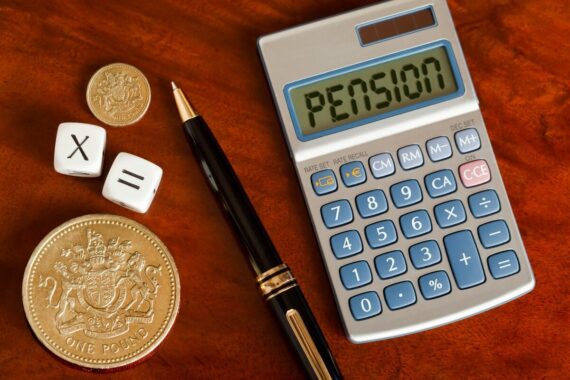Health secretary Dr Thérèse Coffey has pledged to ‘correct’ GP pension rules around inflation so that GPs are not taxed unnecessarily.
In her new Our plan for patients, published today, the health secretary said this would ‘incentivise’ the ‘most experienced GPs to stay in practice’.
The document also set out plans to create ‘additional pension flexibilities’ such as an option to retire on a partial basis.
The plan said: ‘We will incentivise our most experienced GPs to stay in practice by correcting pension rules regarding inflation.’
The Department of Health and Social Care (DHSC) said that ‘fixing the unintended impacts of inflation’ will mean that ‘senior clinicians aren’t taxed more than is necessary’.
It added that it will amend the revaluation date in the NHS Pension Scheme to reduce the ‘risk that NHS staff face annual allowance tax charges as a result of high inflation’.
GP leaders and specialist GP accountants previously urged the Treasury to take action to prevent ‘huge’ pension tax bills for thousands of GPs due to the ‘unfair’ way that inflation is applied to their pension.
GP pensions experts had warned that the average GP could be hit by a ‘nightmare’ £33k tax bill.
What is the issue around GP pensions and inflation?
The issue relates to tax-free annual allowance (AA) charges, which apply when an individual’s pension grows by more than the maximum amount of tax-free growth in one year – the standard AA currently stands at £40,000, but this is adjusted based on total income.
However, an ‘anomaly’ in the legislation means that the way HMRC calculates the increase in the value of an individual’s pension is based on ‘pseudo-growth’ – meaning that doctors are potentially going to be charged on ‘a benefit they will never actually receive’, as the BMA put it.
The pension can only increase by inflation as measured in the September preceding the relevant tax year (3.1% in September 2021) before testing against the Annual Allowance. But the pension is increased by the inflation as measured in September of the tax year (ie September 2022).
Given the rapid rise in inflation, this means that GPs will face significant AA tax charges simply as a result of these two different measures of inflation being used. Worst of all, assuming inflation falls again next year, the value of the GP’s 1995 pension will fall in real terms but this fall in pension growth in the 1995 scheme cannot be offset against any pension growth in the 2015 scheme.
The document also set out that the health secretary will reform elements of the NHS pension scheme to ‘increase capacity’ by retaining doctors and incentivising the return of those who have retired by ‘creating additional pension flexibilities’.
It said she will do this by ‘implementing permanent retirement flexibilities and extending existing temporary measures to allow our most experienced staff to return to service or stay in service longer’.
The DHSC added that the new retirement flexibilities include allowing ‘retired and partially retired staff to continue to return to work or increase their working commitments without having payment of their pension benefits reduced or suspended’.
This means GPs will be able to take partial retirement and draw on their pension while continuing to build it and working more flexibly, or to return to work and continue building their pension after retirement.
The temporary ‘retire and return’ easements currently due to expire next month will also be extended until 31 March 2025 to help stem the exodus of doctors from the NHS, the DHSC said, although this does not apply to GPs.
The document also said that the Government will extend the emergency registers of health professionals such as GPs who returned to work during the Covid pandemic for two more years.
Temporary returner GPs were due to be removed from the Emergency Registered Practitioner (ERP) register at the end of this month.
And the health secretary pledged to ‘design and deliver’ the Government’s long-awaited ‘long-term workforce plan’, as well as to review ‘education and training requirements’ for healthcare staff to ‘meet the changing needs and expectations of patients in the future’.
It comes as the BMA urged the new Chancellor to fix the GP pensions ‘crisis’ ahead of an emergency ‘mini-budget’ due to be announced tomorrow, including urgent reforms to the Finance Act to fix the anomalies caused by inflation.
Last month, new Prime Minister Liz Truss said she will ‘need to sort out’ the issues with doctor pensions if she won the Conservative party leadership contest and pledged to relax GP pension tax charges in a bid to stem the exodus of doctors from the NHS.
Pulse October survey
Take our July 2025 survey to potentially win £1.000 worth of tokens















Govt will only pick one of your pockets – be thankful. (Tongue firmly in cheek).
Nope – this isn’t saying anything to me….50, 22 years experience as a GP, full time – planning to retire as soon as…..because the job is sh1t (slightly more so since todays announcements).
key word from a politician in this whole silly, predicted affair………”will” !
i will do this, i will do that, i will make you all millionaires by the time you’re 35 etc etc etc
DO NOT FALL FOR IT !
as my late father said “a promise is a pie crust….it’s there to be broken” !
Who are you anonymous Dr Fedup GP? Let’s have a name, along with
your anon strength of your convictions
Having retired 3 years ago partly due to punitive AA charges and Lifetime allowance nonsense I would expect that any changes that are planned will be applied on a retrospective basis going back 10 years with a taper for the next 5.I think that this one was done before 🙂 Wont count my chickens on this one